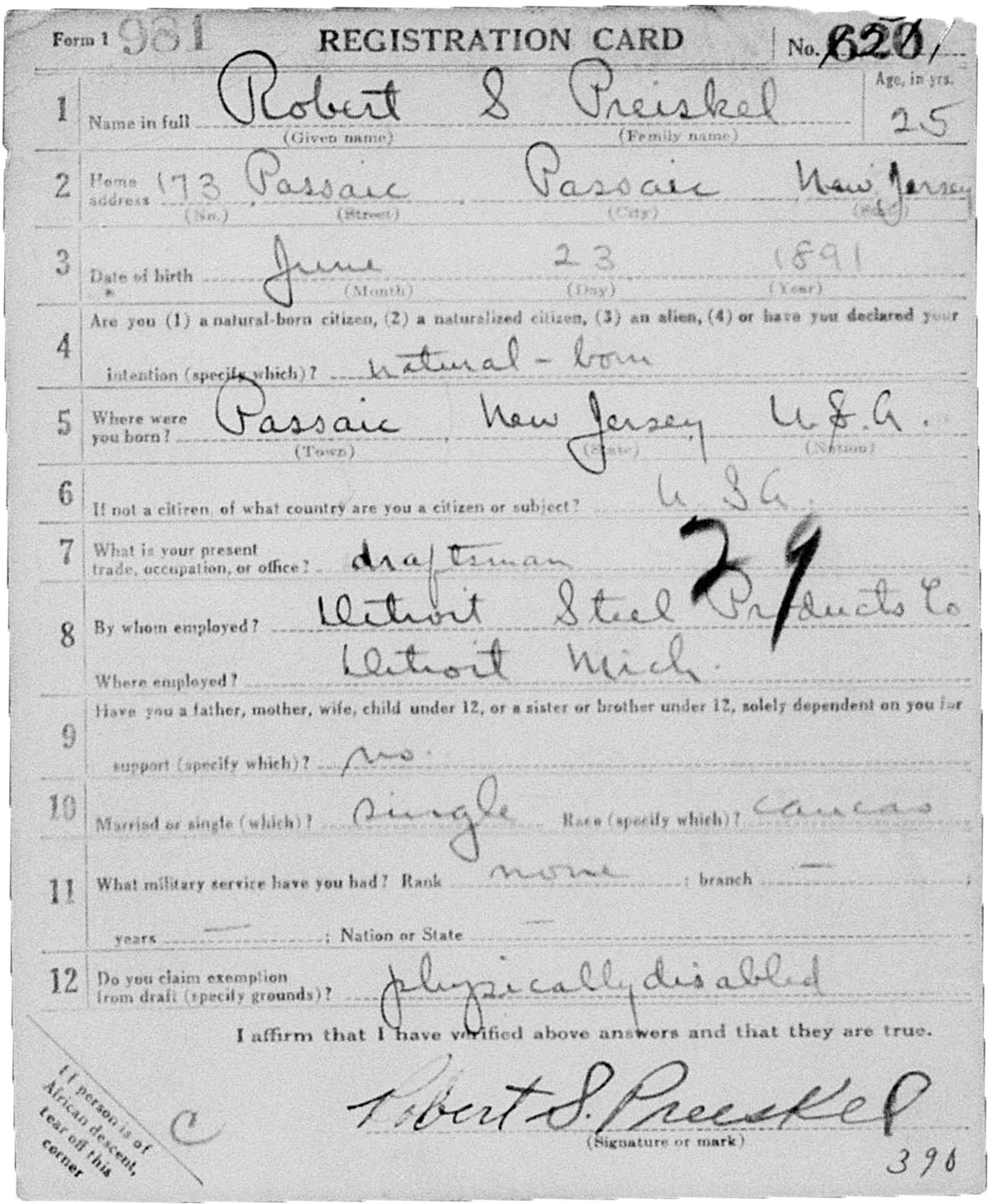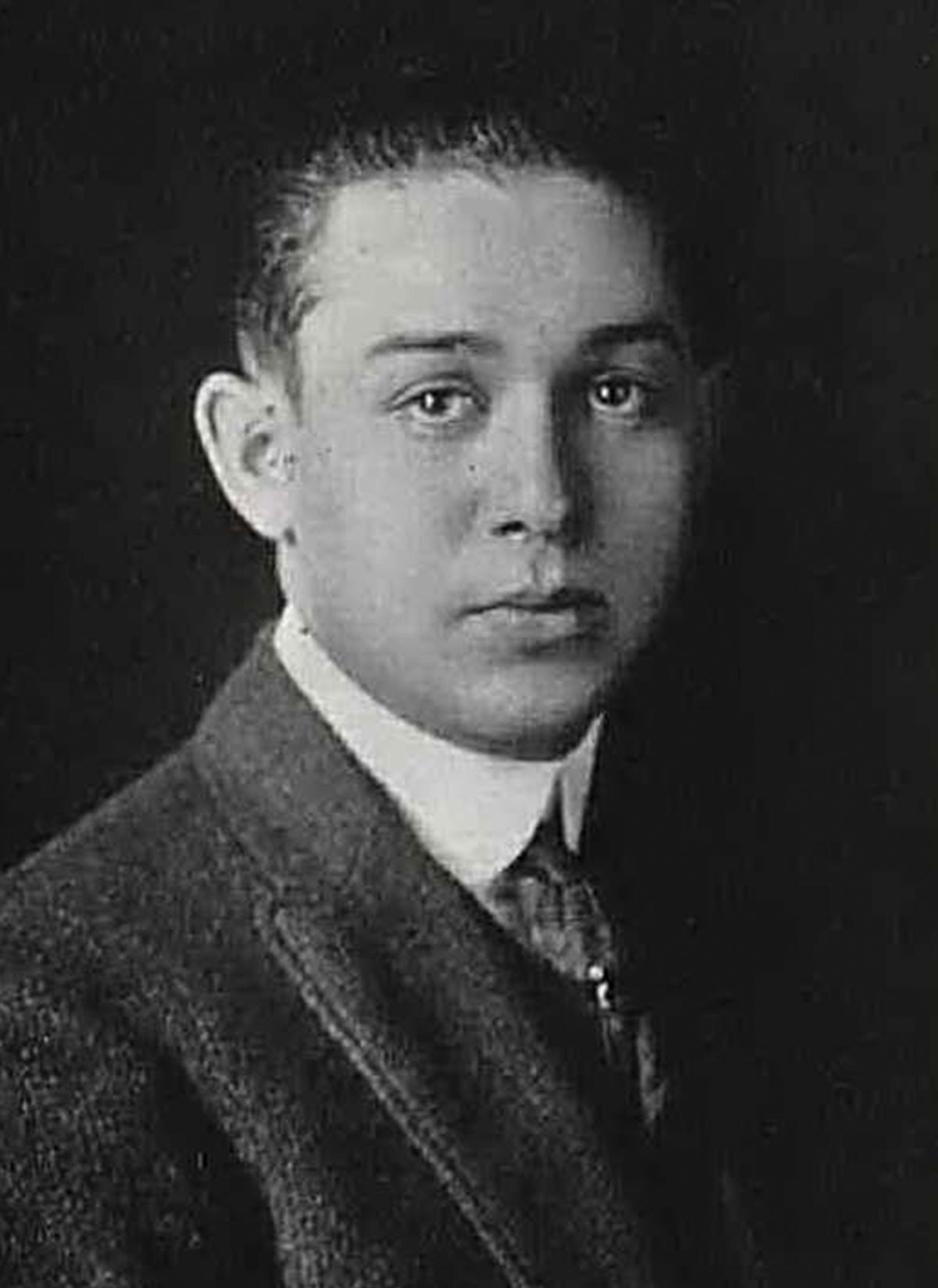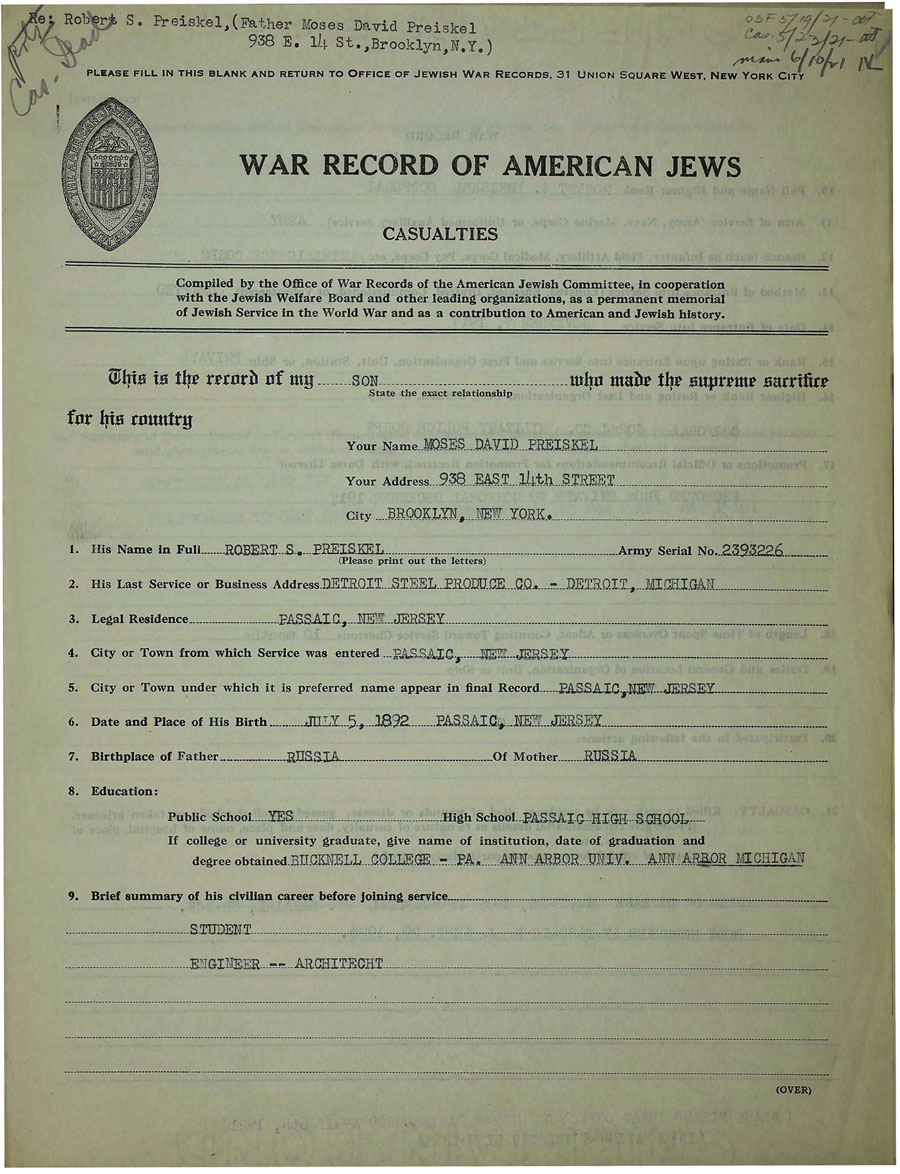“Yank, Dead Ten Years, Kept ‘Alive’ For His Mother.” So read this titillating 1929 headline about “my” Bucknellian Robert Preiskel, Class of 1915.
I’d been drawn to Preiskel after wading through the 717 records in the Bucknellians in WWI database, hoping to locate someone who could add diversity to the project. Preiskel was Jewish at a time when, unlike Bucknell, many colleges rejected Jewish applicants outright. The names and residences of his six siblings were also in his record, so I figured finding a live descendant through Ancestry.com could be doable.
When I located Robert’s great-nephew, John Preiskel, a California lawyer, this spring, he confirmed what I’d suspected, that John’s father, Robert, had been named for our deceased Bucknellian. John’s quick call to his Aunt Marion revealed that Robert had been his mother’s favorite son. This certainly jibed with my discovery of a complex hoax, concocted to shield Mother Preiskel from news of Robert’s death.

Shortly before calling John, I’d typed “Robert Preiskel” into the Newspapers.com search bar and stumbled onto an alarming national news story. I read that Minnie Preiskel was an invalid, and her doctors predicted news of Robert’s death in 1919 would kill her. His brother-in-law made frequent trips to Europe, carrying packets of fictitious letters addressed from Robert to his mother in Passaic, N.J. Letters she mailed from Passaic were intercepted and forwarded to her daughter’s home. The family kept up the ruse until Mrs. Preiskel’s death in 1929.
According to documents I found, Robert died in the hospital in Saint-Nazaire, France, on March 26, 1919, of an unspecified “disease.” But from John, I heard another supposed cause of death — that Robert had stepped on a land mine.
There was a painful irony to the family version. On his draft registration, Robert had asked for a deferment on the grounds of a physical disability, as he wrote, “lame, weak ankle.”
As I walked the uneven ground of the Argonne Forest this May, I thought of Robert tramping here as part of the 308th Artillery Regiment nearly 100 years ago. This was no place for a man with a limp.




